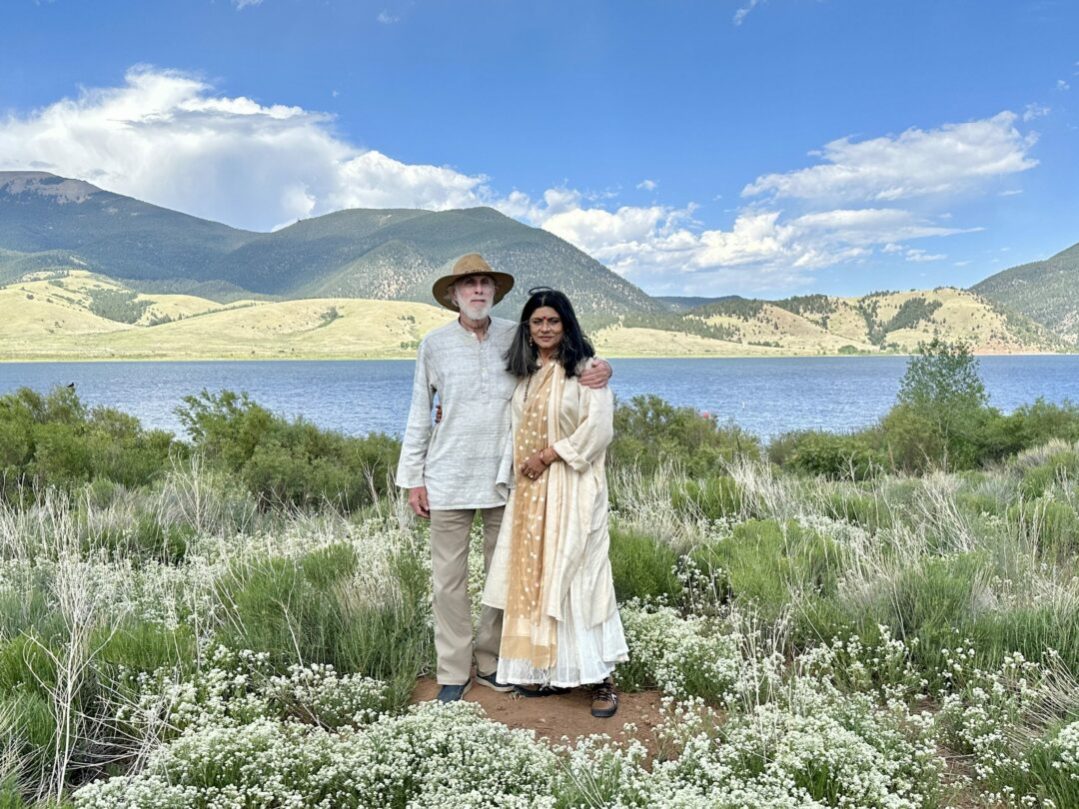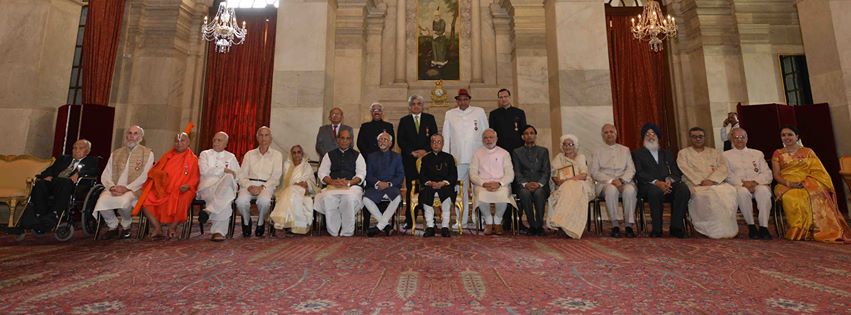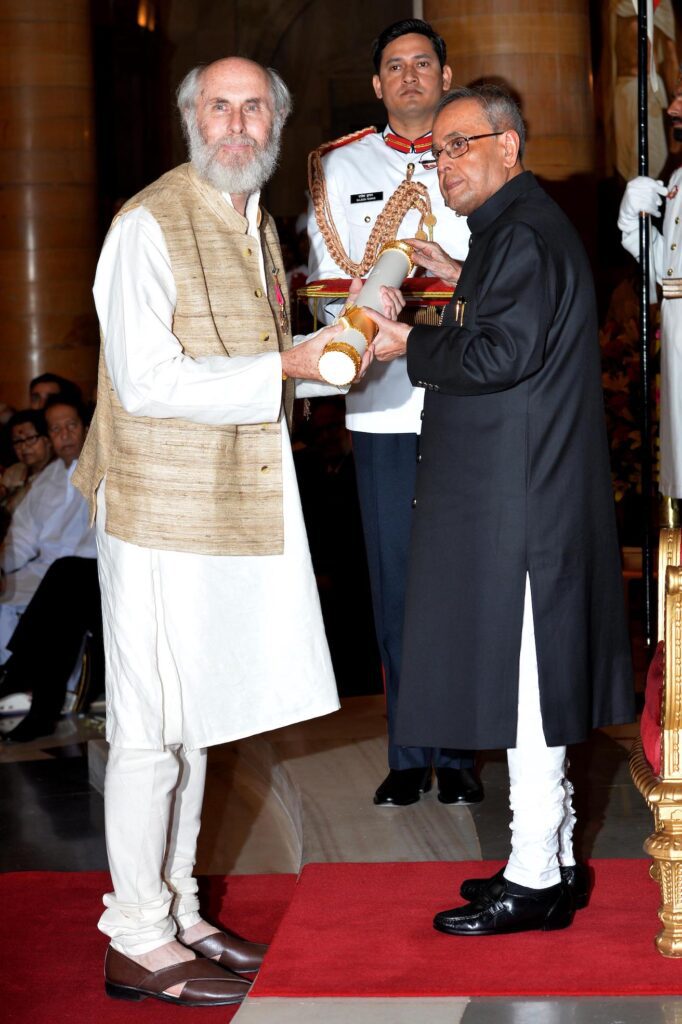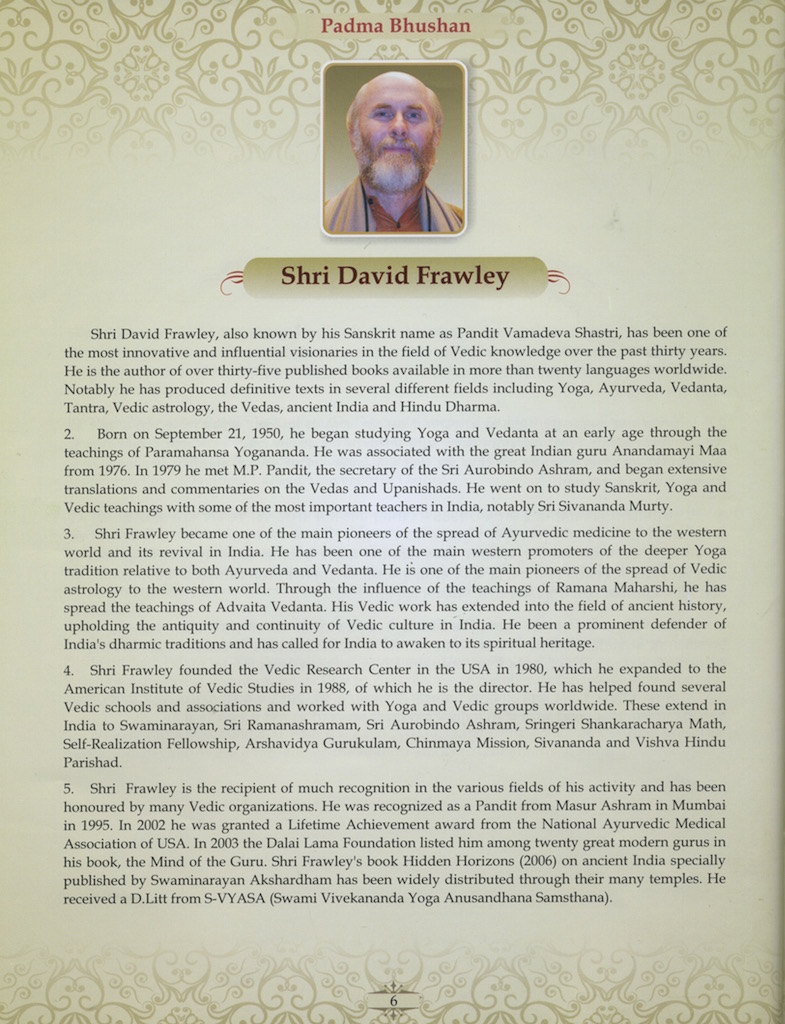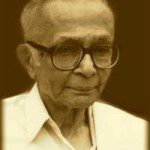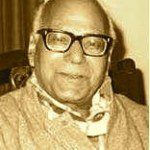Acharya David Frawley (Pandit Vamadeva Shastri)
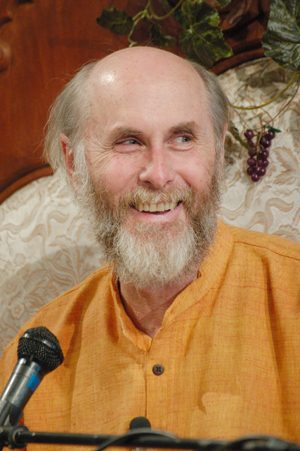
Dr. David Frawley D. Litt., (Pandit Vamadeva Shastri) is a Vedacharya and one of the leading exponents of Vedic knowledge in an interdisciplinary approach worldwide. The American Institute of Vedic Studies serves as a vehicle for his work, offering on-line access to go along with his many published writings.
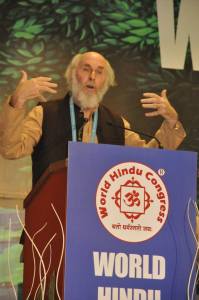
Biographical Information
Dr. David Frawley (Pandit Vamadeva Shastri) is a recipient of the prestigious Padma Bhushan award, the third highest civilian award granted by the government of India, “for distinguished service of a higher order to the nation,” honoring his work and writings as a Vedic teacher, which he received in January 2015.
He has a D. Litt. (Doctor of Letters), the highest educational title possible in the field of Yoga and Vedic sciences, from SVYASA (Swami Vivekananda Yoga Anusandhana Samsthana), the only deemed Yoga university recognized by the Government of India. He has a second D. LITT. from Ram Manohar Lohia Ayodhya University, Uttar Pradesh that was given to him by the governor of Uttar Pradesh. He has a National Eminence Award from the South Indian Education Society (SIES), affiliated with the Kanchi Shankaracharya Math, which has only been given to about fifty educators over the last forty years.
In India, Vamadeva’s translations and interpretations of the ancient Vedic teachings have been acclaimed in both spiritual and scholarly circles. He has worked extensively teaching, writing, lecturing, conducting research and helping establish schools and associations in related Vedic fields worldwide over the last three decades.
In addition, he writes regularly for various publications and the social media on educational issues and the importance of Vedic knowledge, extending the India television. He has been one of the main pioneers in introducing Ayurvedic medicine to the western world, as well as Jyotisha (Vedic astrology), the deeper aspects of Yoga and Vedanta, and the yogic interpretation of the Vedas.
Vamadeva second from left in official group picture for the higher Padma Awards,
With Prime Minister Narendra Modi, President Pranab Mukherjee, Vice-President Hamad Anasari, and Home Minister of India, Rajnath Singh in the center, and second to the right of Vamadeva former Deputy Prime Minister L.K. Advani. Awards for Bharat Ratna, Padma Vibhushan and Padma Bhushan. Ceremony at Rashtrapati Bhavan on March 30, 2015.
Vamadeva receiving the Padma Bhushan Award from President of India Pranab Mukherjee.
Vamadeva sees his role as a “Vedic educator” helping to revive Vedic knowledge in an interdisciplinary approach for the planetary age. He regards himself as a translator to help empower people to use Vedic systems to d aid in their greater Self-realization.
Phillip Goldberg in his popular book American Veda (page 223) recognizes Vamadeva (Dr. David Frawley) as one of the main “acharya”s of Vedanta-Yoga in the West today, as well as noting his influence in India as a Vedacharya. Note comments about his work below.
“Those who know (vidvaamsah) will confirm that the works of Shri Vamadeva Shastri are distinguished by their authenticity. This is so because they are based on (1) his personal quest and experience (2) deep dwelling into the texts and (3) oral learning received from many authentic teachers who are experts in their areas of knowledge. Shri Vamadeva Shastri (Acharya David Frawley) has done this great service to many that he has offered access into knowledge that was often hitherto inaccessible to an average western seeker.”
Swami Veda Bharati, Swami Rama Sadhaka Grama, Rishikesh“Dr. David Frawley is one of the most important scholars of Ayurveda and Vedic Science today. I have great respect and admiration for his knowledge and the way he has expounded the ancient wisdom of the Vedas.”
Dr. Deepak Chopra“Frawley is an Indian in an American body. The ease with which he enters into the spiritual of the Indian tradition and renders its deeper concepts in terms of modern thought shows an unusual familiarity with this ancient wisdom.”
M.P. Pandit, Secretary of Sri Aurobindo Ashram“Certainly America’s most singular practicing Hindu.”
Ashok Malik, India Today Magazine“David Frawley is a formidable scholar of Vedanta and easily the best known Western Acharya of the Vedic wisdom.”
Ashish Sharma, Indian Express, the Express Magazine“Pandit Vamadeva Shastri, Vedacharya Dr. David Frawley has studied the timeless ancient wisdom of the Vedas. He brings us Vedic knowledge in a direct and practical way, so that one can apply this wisdom in his or her daily life. With his beautiful knowledge of Sanskrit, he has put this complex knowledge in a modern scientific way that will help Ayurvedic scholars, Vedic scholars and even those who study quantum physics.”
Dr. Vasant Lad, B.A.M.&S., M.A.Sc, Ayurvedic Physician and Director of the Ayurvedic InstituteMessage to Dr. Frawley from Sri Lokesh Chandra on reception of Padma Bhushan Award
“Your books open the heart instead of keep up do-nots. Your magnum opus on the Rigveda sheds entirely new light on the earliest period of Indian and Indo-European history. The Padma Bhushan award is a long-awaited recognition of your creative insights into the Sanskrit centuries and contemporary practices. Ever more strength to your pen so that the seeds of great tomorrows are born. Padma Bhushan is India’s Thank You, as you carry Eternity into the Present. With renewed congratulations to you, the Yogeshvara.
Prof. Lokesh Chandra, Director of the Indian Council of Culture Research (ICCR), government of India
Padma Bhushan Award Citation
Pandit, Vedacharya and Professor
Vamadeva received a Pandit award as part of a special Brahmacharya Vishvanathji yearly award in Mumbai in 1994. His role as a pandit and Vedic teacher (Vedacharya) has been honored by many groups in India. These include Swaminarayan (BAPS), Arsha Vidya Gurukulam (Swami Dayananda), and the Chinmaya Mission (Swami Mitrananda). Such a traditional title as a Pandit and Vedacharya implies having written and taught on the four Vedas and Upanishads, which Vamadeva has done in his many Vedic books that include original translations from the Sanskrit, starting with the most ancient Rigveda.
Reviving Traditional Ayurveda
Vamadeva is a senior teacher of “traditional Ayurveda,” the older Vedic or Vaidya approach which incorporates Yoga, Vedic astrology, and Vedanta into its teachings. He is working to revive traditional Ayurveda and all its Vedic connections. He is a “master educator in the field of Ayurveda and Vedic studies.” Vamadeva has helped start a number of Ayurvedic schools and organizations, and his innovative teachings on Ayurveda have been used extensively by Ayurvedic groups throughout the world, including Ayurvedic schools in India. He is recognized as one of the most important Ayurvedic teachers and acharyas today.
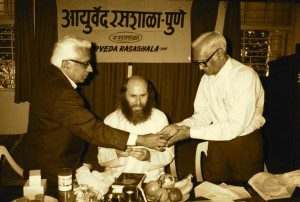 Vamadeva’s main teacher of Ayurveda was Dr. B. L. Vashta of Bombay and Pune (1919-1997), note photo left with Vashta on the right and P.H. Kulkarni on the left. For ten years he remained under the guidance of Dr. Vashta, visiting him regularly in India.
Vamadeva’s main teacher of Ayurveda was Dr. B. L. Vashta of Bombay and Pune (1919-1997), note photo left with Vashta on the right and P.H. Kulkarni on the left. For ten years he remained under the guidance of Dr. Vashta, visiting him regularly in India.
Dr. Vashta, a graduate of one of the first Ayurveda programs in India in 1941, wrote many books on Ayurveda and helped formulate Ayurvedic products for Ayurvedic companies. Vashta was also a leading journalist in the state of Maharashtra and became an important guide for Vamadeva. Vashta taught him the value of traditional Ayurveda.
Over the years, he has done many programs with the Ministry of AYUSH in India, and with S-VYASA university, as well doing programs with Indian embassies throughout the world on Yoga and Ayurveda.
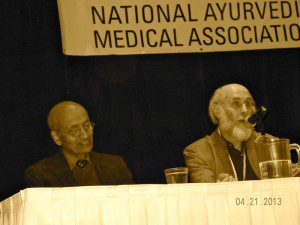 In America, Vamadeva has worked with Dr. Vasant Lad, noted Ayurvedic teacher and author. Vamadeva taught with Dr. Lad at the Ayurvedic Institute in 1983-1986. Along with Dr. Lad, he wrote the Yoga of Herbs (1986), which was the first book published integrating western herbs into Ayurveda.
In America, Vamadeva has worked with Dr. Vasant Lad, noted Ayurvedic teacher and author. Vamadeva taught with Dr. Lad at the Ayurvedic Institute in 1983-1986. Along with Dr. Lad, he wrote the Yoga of Herbs (1986), which was the first book published integrating western herbs into Ayurveda.
Vamadeva’s main areas of specialization in Ayurveda are herbal medicine, Ayurveda and the mind, and Ayurveda and Yoga. He has written many books on Ayurveda including the Yoga of Herbs, Ayurvedic Healing (foreword by B. L. Vashta, 1989), Ayurveda and the Mind (1996), Yoga and Ayurveda (1999), Ayurveda, Nature’s Medicine (with Subhash Ranade, 2001), and Ayurveda and Marma Therapy (with Ranade and Lele, 2003).
Vamadeva’s Soma in Yoga and Ayurveda (2012) is his longest and most detailed book on Ayurveda, and addresses deeper Yoga practices, including secrets of Ayurvedic herbs. His book the Art and Science of Vedic Counseling shares an integral view of Vedic knowledge synthesizing Yoga, Vedanta, Ayurveda and Vedic astrology with the background Vedic Knowledge.
Reviving Vedic Knowledge, the Rigveda, Sri Aurobindo, Ramana Maharshi, Ganapati Muni
Vamadeva’s teachings are rooted in Vedic mantras going back to the Rigveda. He is regarded as a master teacher of the Vedic mantras, their deities and their applications and shares the ancient Vedic Raja Yoga and its deeper sadhanas.
Ramana Maharshi, Ganapati Muni and K. Natesan
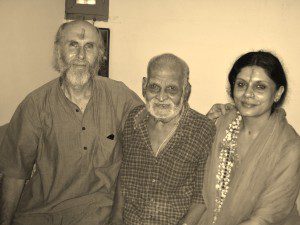 Vamadeva has been a disciple and devotee of Ramana Maharshi, the great sage of South India, since 1970, holding to the traditions of Advaita Vedanta. He carries on the work of Ganapati Muni, one of Maharshi’s chief disciples, whose teachings he received through K. Natesan of the Ramanashram in 1991. Vamadeva was in regular contact with Natesan up to his passing in 2009 at the age of 96, photo to right. Natesan carried both the legacy of Ramana Maharshi and Kavyakantha Ganapati Muni, a great modern Sanskrit writer and a great Raja Yogi.
Vamadeva has been a disciple and devotee of Ramana Maharshi, the great sage of South India, since 1970, holding to the traditions of Advaita Vedanta. He carries on the work of Ganapati Muni, one of Maharshi’s chief disciples, whose teachings he received through K. Natesan of the Ramanashram in 1991. Vamadeva was in regular contact with Natesan up to his passing in 2009 at the age of 96, photo to right. Natesan carried both the legacy of Ramana Maharshi and Kavyakantha Ganapati Muni, a great modern Sanskrit writer and a great Raja Yogi.Sadguru Sivananda Murty and Yoga-Vedanta
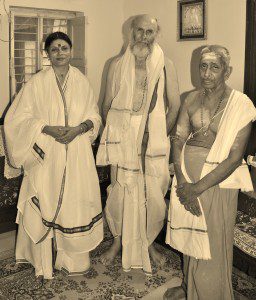 Since 1994 Vamadeva has been a disciple of the noted South Indian guru, Sivananda Murty (1928-2015) of Andhra Pradesh (Vishakhpatnam), who is of Ramana’s line and a great yogi as well, with connections to Trailinga Swami.
Since 1994 Vamadeva has been a disciple of the noted South Indian guru, Sivananda Murty (1928-2015) of Andhra Pradesh (Vishakhpatnam), who is of Ramana’s line and a great yogi as well, with connections to Trailinga Swami.
He worked with Sivananda Murty on the Upanishads, Yoga, Vedanta and Vedic Astrology. Vamadeva wrote the foreword to Sadguru Sivananda Murty’s Katha Yoga, a deep yogic study of the Katha Upanishad. Sivananda Murty provided an introduction Vamadeva’s book Universal Hinduism.
Vamadeva considers Sadguru Sivananda Murty to be one of the most important spiritual masters in India. He was the head of a Sivadvaita-Shaktivasishta order and Shaiva Mahapeetham, which Vamadeva and Shambhavi have joined by direct initiation with Sivananda Murty. He wrote the introduction to Dr. Frawley’s book Shiva, the Lord of Yoga (2015). Sivananda Murty was a great astrologer known for his world predictions. Yogini Shambhavi shares his connection with Sivananda Murty.
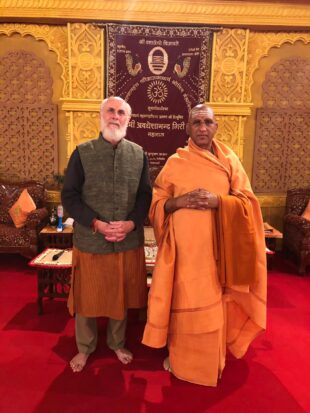
Vamadeva has been connected to the teachings of Paramahansa Yogananda the the Kriya Yoga movement since he first took the SRF lessons in 1970, and has closely studied the teachings of Yogananda’s guru, Sri Yukteswar. SRF has published his articles and referred to his books in their publications. His quote on Yogananda has recently appeared in the new edition of Autobiography of a Yogi. He has visited SRF’s India center in Ranchi and participated in India book launches of Autobiography of a Yogi. In America he did a number of programs with Yogananda disciples like Roy Eugene Davis and Swami Kriyananda.
Vamadeva corresponded with Sri Sri Anandamayi Ma from 1976-1982, and remains a devotee of hers. She directed him to the study of Advaita Vedanta and the Vedas, telling him to “have full faith in his Vedic mission.” This gave him the confidence to go forward with his research and commentaries.
Spreading the Light of Vedic Astrology
Vamadeva began studying Vedic astrology (Jyotish) as part of his Vedic research in the early seventies and brought out a course in the subject in 1985. He continues to use Vedic astrology, particularly in the context of Yoga and Ayurveda, for a deeper understanding of Vedic wisdom. Vamadeva wrote Astrology of the Seers (1990), one of the first books on Vedic astrology published in the West. This was followed by Ayurvedic Astrology (2005), which pioneers the field of ‘Ayurvedic Astrology’.
In 1992 Vamadeva helped convene the first major American Conference on Vedic Astrology, which led to the founding of the American Council of Vedic Astrology (ACVA) the following year 1993. He became the first president of the organization for ten years (1993-2003).
Yogini Shambhavi joined his work on Jyotish in 2000, providing additional teachings and consultations on this Vedic science of light, reflecting her connection with the Yoga Shakti. She now handles the Jyotish work at the Institute.
Ancient History, Hinduism and Sanatana Dharma
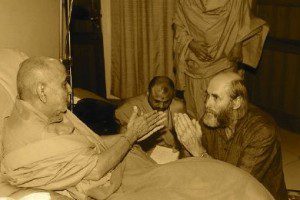 After seeing how the spiritual meaning of the Vedas had been misinterpreted by modern scholars, Vamadeva could easily see how the historical side of the Vedas had similarly been distorted. His work revising the history of ancient India has brought him into contact with major archeologists and historians, like Prof. B.B. Lal of India. He has many published books on the Vedas and Ancient India.
After seeing how the spiritual meaning of the Vedas had been misinterpreted by modern scholars, Vamadeva could easily see how the historical side of the Vedas had similarly been distorted. His work revising the history of ancient India has brought him into contact with major archeologists and historians, like Prof. B.B. Lal of India. He has many published books on the Vedas and Ancient India.Reviving Hindu Dharma
Unlock Ancient Wisdom
Important Pages
join our mailing list to learn about new events, articles and courses
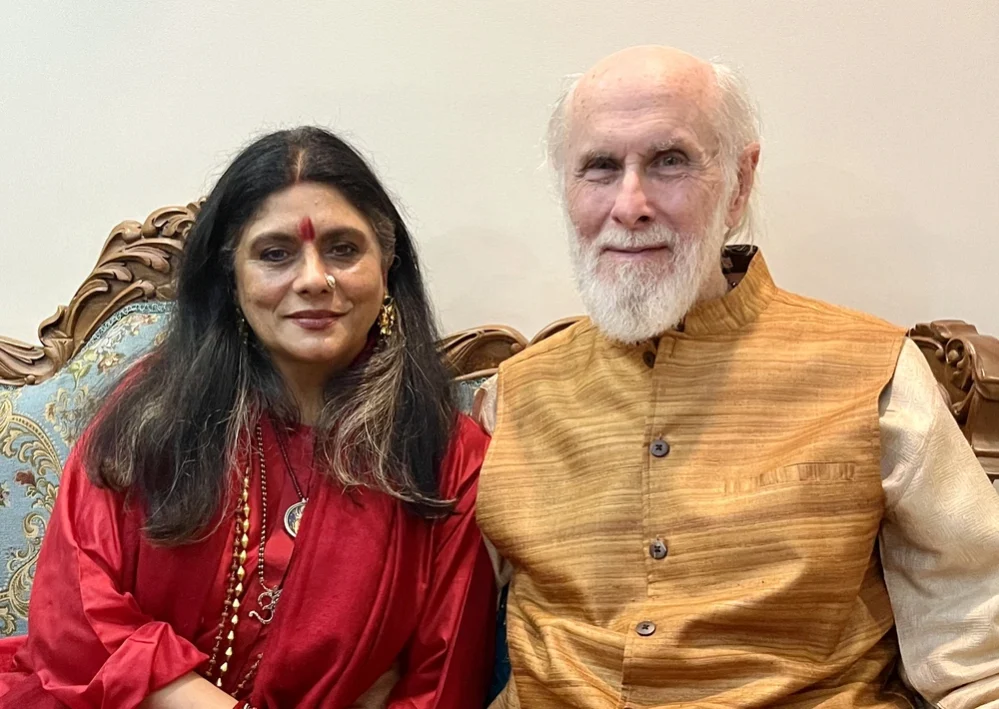
May 24 - 26 | Secrets of Mantra Yoga in Canada
Nov 18 - Dec 2 | India Yoga Retreat
